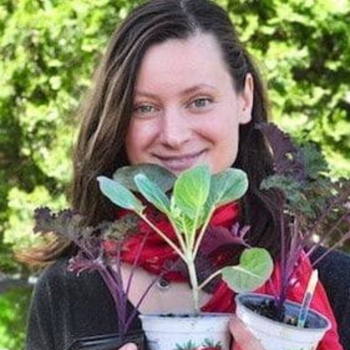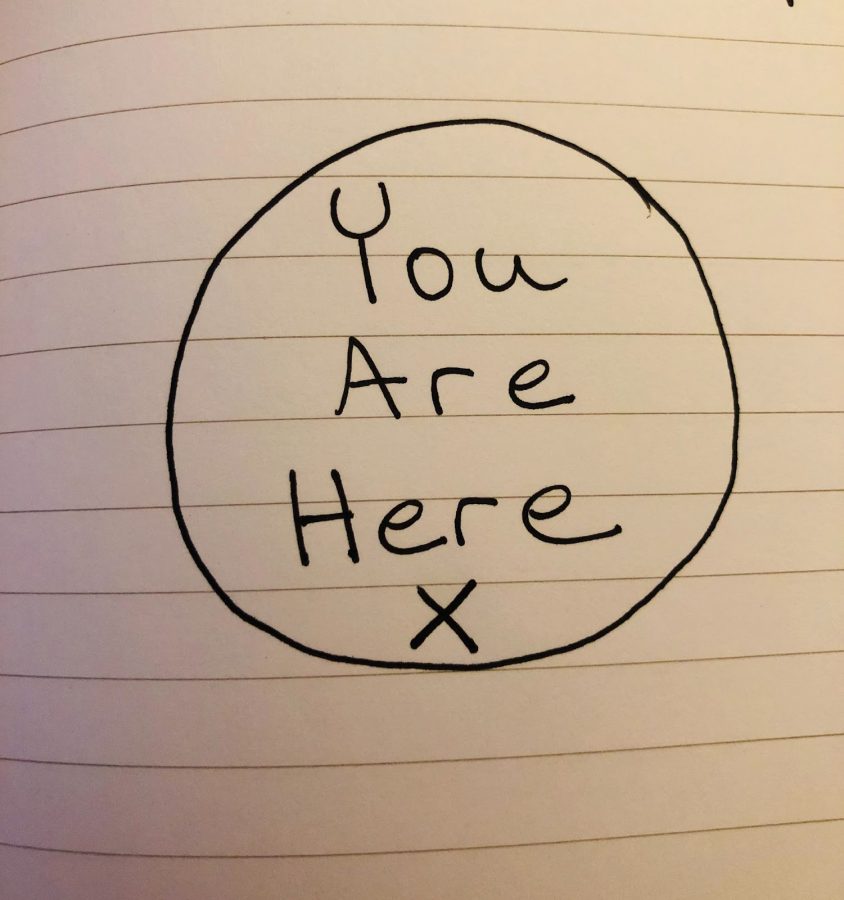The benefits of teaching permaculture extend beyond disseminating knowledge to exploring personal edges and enjoying the thrill of living in the moment.
by Lucie Bardos

Later this month, I will be facilitating a Permaculture Design Certificate course in Kelowna, BC and I wanted to share with any Permaculture Women Magazine readers who might stumble across this blog post, a few reflections that I have with regard to teaching.
Growing up as a shy young girl who lived in her own imagination, together with her pose of imaginary animal friends (à la Sam from My Side of The Mountain), I never thought that speaking in front of a group of people or being a teacher of any sort was in the cards for me. Over the past 12 years, however, I have slowly been discovering the joy of connecting with others through teaching, and have found this process to be both therapeutic and happiness-inducing.
My first foray into teaching was as a starry-eyed 20-year old who had just decided to take a year off from university to go on a crazy adventure and teach English in southern Spain. I was equal parts terrified and excited. After a 1-month intensive teacher-training, I started teaching on my own through a job at a small language school and as a private instructor; this would end up being the next 1.5 years of my life.
Though teaching English I met some of the most interesting people I had ever encountered. This included a 20-something children’s book illustrator who had overcome throat cancer and was learning English as a way to retrain her voice and expand her social network. I met two best friends who were engineers that designed dorky superhero animation videos in their spare time and who invited me out for coffee when they learned that I barely knew anyone in town. I also met a university professor who loved to recount the history and particularities of Seville on our weekly educational walks through the city, and who introduced me to his family, culture, and best of all, to boquerones en adobo (fried sardines in the most delicious, tangy batter ever).
I also overcame some significant challenges and found an inner courage that I did not know I possessed. For instance, as a young woman offering private language classes, I had to come to terms with my own vulnerability and learn how to put up some very clear boundaries when a few of my early students tried to cross the “professional-student-teacher-relationship” barrier, if you know what I mean.
I was put on the spot regularly when frustrated students asked me to explain some of those weird English language idiosyncrasies, such as why the words “cough” and “through” don’t sound anything alike. That was how I learned that teachers are also just learners, and it’s Ok not to have the answer sometimes and to turn instead to discussing challenges together with your students. I happily explored my personal edge and used my proclivity for creative thinking to put aside the mouldy old text books from the 80’s (no kidding — they even came with half-destroyed tapes) that were issued to me by the language school to make up my own language-teaching games, such as narrated fashion shows and the ever-popular “Idiom Idiots”.

To summarize, in my early adulthood, I found that teaching was a way to grow my community and both push and establish healthy boundaries. Eventually, I steered away from teaching English, and as I learned more about the state of the world and simultaneously discovered this lovely thing called Permaculture, I drifted towards facilitating permaculture workshops and organizing meet ups and working groups.
This included a workshop on local currencies that I presented at the University of Toronto and several Introduction to Permaculture and Social Permaculture workshop sessions in Europe and Canada. I enjoyed facilitating meaningful discussions with my peers and connecting with other teachers whenever possible. On one occasion I was invited to participate in the European Permaculture Teachers Partnership meet up where I spoke about the benefits of free, mentor-lead working groups as a way to facilitate affordable and engaging permaculture education. On another, I became part of the faculty of the Permaculture Women’s Guild Online PDC course, which has been a very new and rewarding experience that combines preparing online course material with both web-based and in-person mentorship.

Over the past year and a half, I have been stewarding a local meet up group in Kelowna, BC called Permaculture Kelowna. It’s been such a treat to both facilitate and listen as we explore topics such as social permaculture, school gardens, mushroom cultivation, whole systems design, cob houses and more. Thanks to this group I have been connected to so many amazing projects and people, and early this year, I decided that it was finally time to try my hand at organizing and co-teaching a bona fide Permaculture Design Certificate course. I can’t wait!
To help me, I have recruited several local educators to cover the pieces that they know better than me, and will be using an approach based more on personal experiences rather than detached theory. I find that people engage much more with stories than they do with charts and lists (though sometimes you need those too)! I’ve designed the Kelowna Community PDC course to be grounded in community and to fit busy lives, as well as limited budgets. It has been so heartwarming to see the local community supporting this project, helping to tack up posters, putting blurbs in newsletters, and offering advice and words of encouragement. If you’d like to learn a little more about the considerations I made when designing the course, you can click the video below.
As I make the final preparations for the course, I often reminisce about those old days in Spain: the adrenaline rush I would get before and after teaching a class; that wobbly-knee feeling associated with having to think on your feet in order to avoid (or embrace) embarrassment and disorderly chaos; and of course the deep conversations and lasting friendships that class discussions can often spark.
If any of you out there are seasoned teachers and/or course developers and would like to offer some stories or advice, feel free to reach out to me via www.luciebardos.net!
Wish me luck on this journey!



